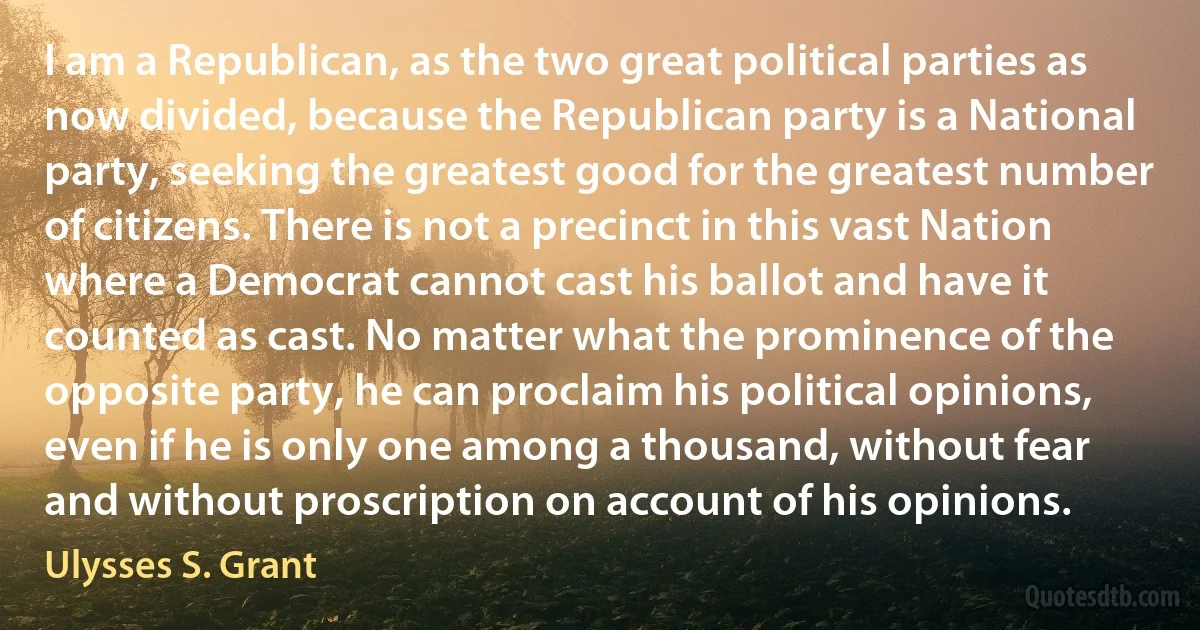Account Quotes - page 18
The knower is the Purusa (the conscious principle) who cognizes the reflection from the Will-to-know by conjunction. The knowable consists of all the characteristics present in the essence of the Will-to know. This, then the knowable behaves like a magnet. It is useful only when placed here. On account of its capacity of knowability, it becomes the possession of the lord, the Purusa, who is of the nature of power of knowing. It becomes the object of the act of enjoyment, in as much as although by nature independent, it becomes dependent on another, existing as it does for fulfilling the object of that other.... The conjunction therewith is the cause, by giving that up is secured the complete remedy of pain, in as much as that is found to be the cause of removal the real thing, the cause of pain.

Vyasa
In every third world age (Dvapara), Vishnu, in the person of Vyasa, in order to promote the good of mankind, divides the Veda, which is properly but one, into many portions. Observing the limited perseverance, energy, and application of mortals, he makes the Veda fourfold, to adapt it to their capacities; and the bodily form which he assumes, in order to effect that classification, is known by the name of Veda-vyasa. Of the different Vyasas in the present Manvantara and the branches which they have taught, you shall have an account. Twenty-eight times have the Vedas been arranged by the great Rishis in the Vaivasvata Manvantara... and consequently eight and twenty Vyasas have passed away; by whom, in the respective periods, the Veda has been divided into four. The first... distribution was made by Svayambhu (Brahma) himself; in the second, the arranger of the Veda (Vyasa) was Prajapati...

Vyasa
Gentlemen, I am a Catholic. As far as possible, I go to Mass every day. This [taking a rosary out of his pocket] is a rosary. As far as possible, I kneel down and tell these beads every day. If you reject me on account of my religion, I shall thank God that He has spared me the indignity of being your representative.

Hilaire Belloc
England is the most class-ridden country under the sun. It is a land of snobbery and privilege, ruled largely by the old and silly. But in any calculation about it one has got to take into account its emotional unity, the tendency of nearly all its inhabitants to feel alike and act together in moments of supreme crisis. It is the only great country in Europe that is not obliged to drive hundreds of thousands of its nationals into exile or the concentration camps.

George Orwell
In India also, for century, education imparted through the medium of a foreign language has unduly dominated its academic life and it has now produced a class of men who are unconsciously so denationalised that any far reaching proposal for the recognition of the Indian languages as the vehicle of teaching and examination up to the highest University stage is either ridiculed as impossible or branded as reactionary. But I plead earnestly for the acceptance of this fundamental principle not on account of any blind adherence to things that I claim as my own but out of a firm conviction that the fullest development of the mind of a learner is possible only by this natural approach and also that by this process alone can there be a great revival of the glory and richness of the Indian languages.

Syama Prasad Mookerjee
These bygone workmen did not serve, they worked. They had an absolute honor, which is honor proper. A chair rung had to be well made. That was an understood thing. That was the first thing. It wasn't that the chair rung had to be well made for the salary or on account of the salary. It wasn't that it was well made for the boss, nor for connoisseurs, nor for the boss' clients. It had to be well made itself, in itself, for itself, in its very self. A tradition coming, springing from deep within the race, a history, an absolute, an honor, demanded that this chair rung be well made. Every part of the chair which could not be seen was just as perfectly made as the parts which could be seen. This was the selfsame principle of cathedrals. ... There was no question of being seen or of not being seen. It was the innate being of work which needed to be well done.

Charles Péguy
The Elgin writer says that we shall "jeopardize the best interests of the Socialist Party" if we insist upon the political equality of the Negro. I say that the Socialist Party would be false to its historic mission, violate the fundamental principles of Socialism, deny its philosophy and repudiate its own teachings if, on account of race considerations, it sought to exclude any human being from political equality and economic freedom. Then, indeed, would it not only "jeopardize" its best interests, but forfeit its very life, for it would soon be scorned and deserted as a thing unclean, leaving but a stench in the nostrils of honest men.

Eugene V. Debs
True courage...has so little to do with Anger, that there lies always the strongest Suspicion against it, where this Passion is highest. The true Courage is the cool and calm. The bravest of Men have the least of a brutal bullying Insolence; and in the very time of Danger are found the most serene, pleasant, and free. Rage, we know, can make a Coward forget himself and fight. But what is done in Fury, or Anger, can never be plac'd to the account of Courage.

Anthony Ashley-Cooper, 3rd Earl of Shaftesbury
Those who say that all historical accounts are ideological constructs (which is one version of the idea that there is really no historical truth) rely on some story which must itself claim historical truth. They show that supposedly "objective" historians have tendentiously told their stories from some particular perspective; they describe, for example, the biasses that have gone into constructing various histories of the United States. Such an account, as a particular piece of history, may very well be true, but truth is a virtue that is embarrassingly unhelpful to a critic who wants not just to unmask past historians of America but to tell us that at the end of the line there is no historical truth. It is remarkable how complacent some "deconstructive" histories are about the status of the history that they deploy themselves.

Bernard Williams
It's a scientific-cum-sporting murder proposition with enough guns at last to account for the birds, and the Hun is having a very sickly time of it. He has the erroneous idea that he is being hurt, whereas he won't know what real pain means for a long time. I almost begin to hope that when we have done with him there will be very little Hun left.

Rudyard Kipling
We cannot be scholars of Christ without trying to understand what is the place and the work in the world for which each of us is fitted. Every thing which befalls us is part of our education. Every event and condition of life is a lesson which is to be turned to account to make us more worthy of Him who by suffering was made perfect-who Himself entered not into glory, till first He had suffered pain.

Arthur Penrhyn Stanley
To give here an elaborate account of Pappus would be to create a false impression. His work is only the last convulsive effort of Greek geometry which was now nearly dead and was never effectually revived. It is not so with Ptolemy or Diophantus. The trigonometry of the former is the foundation of a new study which was handed on to other nations indeed but which has thenceforth a continuous history of progress.

Ptolemy



